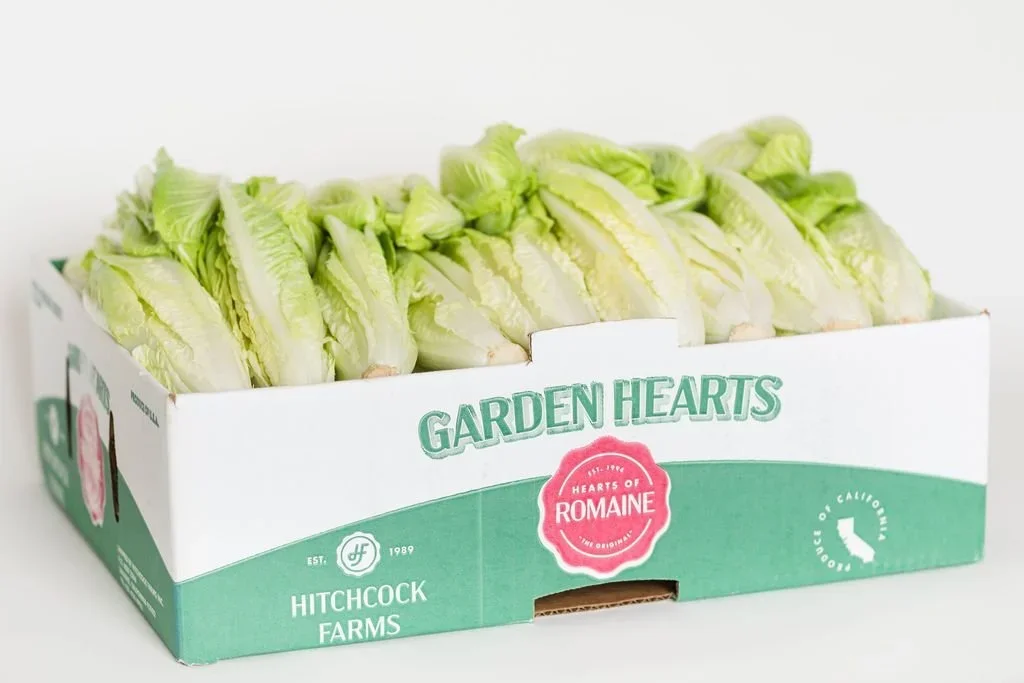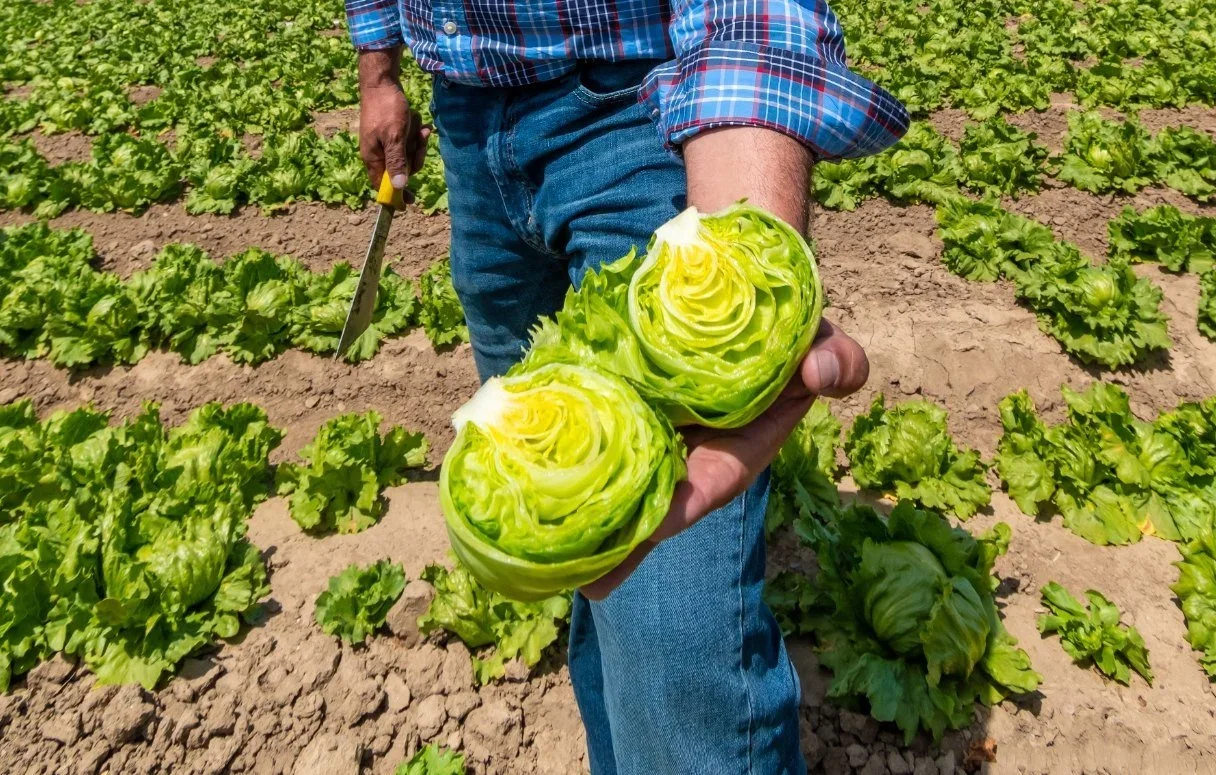Whether you're the food buyer for a restaurant chain, hotel franchise, or casino operation, you understand how important it is to always source the very best for your company.
Here at Hitchcock Farms, we're committed to growing the highest quality produce so that our partners can keep everyone happy, from creative chefs to discerning diners.
In this blog, we're exploring food sourcing options in 2025 and sharing our top tips for finding the best suppliers for your operation.
What's New in Food Sourcing in 2025?
Like all industries, commercial food sourcing has changed with the times.
Here are three of the biggest trends impacting the industry in 2025:
Nearshoring
Nearshoring is the practice of partnering with producers and suppliers who are closer to home.
By keeping your operations local, you can avoid steep shipping costs and supply chain delays.
More and more businesses are embracing nearshoring in 2025.
The strategy is becoming especially popular for food sourcing as commercial kitchens look to local farms to meet their produce needs.
Sustainability
Sustainability continues to top the list of food trends in 2025.
Consumers have an ever-growing interest in environmentally friendly food, and commercial kitchens are adjusting their practices to align with their diners.
Food buyers are seeking out produce that's sustainably and ethically grown, organic, and shipped in biodegradable or recyclable packaging.
Technology
We can't ignore the role that technology plays in the food business.
In 2025, artificial intelligence has been a revolutionary tool for supply chain management, making it faster and easier for food buyers to find reputable suppliers.
AI can also help procurement teams predict their changing needs, which will help them continue to purchase the right food items in the right quantities at the right times.
Types of Commercial Food Suppliers
To find the best ingredients for your commercial kitchen, you first need to decide which type of supplier to work with.
All food suppliers offer different benefits, so you have to consider your restaurant's unique needs to determine which is best.
National Wholesalers
National wholesalers are a one-stop shop for all food needs, including produce, dairy, meat, and dry ingredients.
They partner with a large network of farmers so that they always have what your commercial kitchen needs.
Pros:
Can buy everything you need in one place
Large and varied selection of goods
Discounts for bulk buying
Cons:
Long-distance transport means less freshness
Less personalized service
Best For: Bulk purchases of dry goods or frozen fruits and vegetables.
Specialty Suppliers
Specialty suppliers usually offer a wide, high-quality selection of a particular food item.
For instance, you might source your restaurant's meats from a specialty butcher or partner with a wine or beer supplier.
Pros:
Large selection of specialty items
Personalized service and product recommendations
Cons:
Stock is usually limited to one type of food or beverage
Higher prices
Best For: Sourcing the foods your restaurant is best known for or the items you want to stand out on your menu.
Regional Markets
Regional markets are a centralized hub for your commercial kitchen's needs.
They typically partner with local farms, butchers, and other suppliers to source quality ingredients.
Pros:
Locally sourced food items
Wide variety of products available
Lower shipping costs
Cons:
Products may change with the seasons
Best For: Bulk purchases of dairy, meats, fish, and other fresh ingredients.
Local Farms
Sourcing your produce directly from a local farm is a great way to ensure you're getting the best and freshest items.
Hitchcock Farms has partnered with many food service businesses to meet their produce needs, standing out for their commitment to quality, consistency, and innovation, all from their home base in California’s Salinas Valley.
Pros:
Can buy fresh seasonal produce in bulk
Lower risk of supply chain disruptions
Personalized service
Cons:
Selected catalog of produce items
Produce may only be available seasonally
Best For: Fresh, in-season produce items.
How to Find the Right Food Supplier
1. Identify Restaurant Needs
Start by analyzing your restaurant's menu and sales to understand your food needs.
Determine the specific types and quantities of foods that your restaurant uses on a weekly or monthly basis.
Then, think about your quality standards. What is your restaurant known for? Which items need to stand out on your menu?
From here, you can choose the type of supplier you want to work with.
You could partner with a regional or national wholesaler, a local farm, a specialty supplier, or a combination of suppliers.
2. Evaluate Quality and Consistency
As you research suppliers, focus on quality and consistency.
Whether you're buying romaine hearts, baby iceberg lettuce, or artichokes, the price of quality is always worth your investment.
Your company depends on you to source from a produce grower who always delivers reliably fresh products.
Here at Hitchcock Farms, we're committed to growing produce that maintains its freshness from field to table and ensures customer satisfaction.
3. Assess Reliability and Customer Service
You're responsible for sourcing quality, and you depend on reliable procurement and timely delivery.
A reputable produce grower makes it easy to coordinate your job by always providing the products and services that meet your highest standards.
When shopping around for suppliers, take note of their customer service practices.
Do their reps follow up with you in a timely manner? Do they seem able to adapt on short notice to changes or emergencies?
Our team at Hitchcock Farms understands how important the customer experience is in the restaurant industry.
Just like you commit to providing excellent service to your diners, we commit to timely, friendly, and effective service on the back end.
4. Compare Prices
Once you've narrowed down your search to a few of the best suppliers, it's time to compare prices.
Analyze quotes from the suppliers to see who can give you the best deal.
You can always negotiate with suppliers for more favorable terms, too.
Your supplier of choice may be able to offer a discount for bulk purchases or promise a tighter delivery schedule than their competitor.
Suppliers understand that cost matters, and they're often willing to negotiate with buyers if it means securing a great contract.
5. Build and Maintain Relationships
Developing a long-term professional relationship with your supplier is one of the best ways to streamline your business operations.
Foster open communication and collaboration so that you and your supplier work together as a team.
You can trust that your supplier will continue to reliably meet your needs even as your business grows and evolves.
Always at Your Service
We understand your responsibilities as a buyer, and we're committed to supplying you with the freshest produce available.
Our client list extends across the U.S. and Canada, and we're proud of our solid reputation stretching back to the late 1800s.
You want a produce grower who always delivers the best, and Hitchcock Farms is always at your service.






